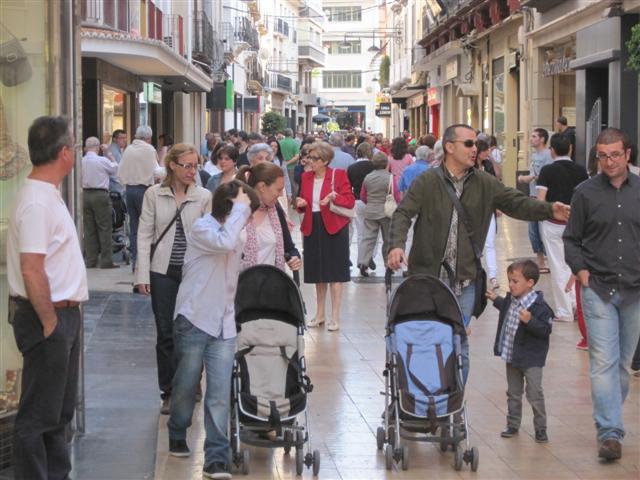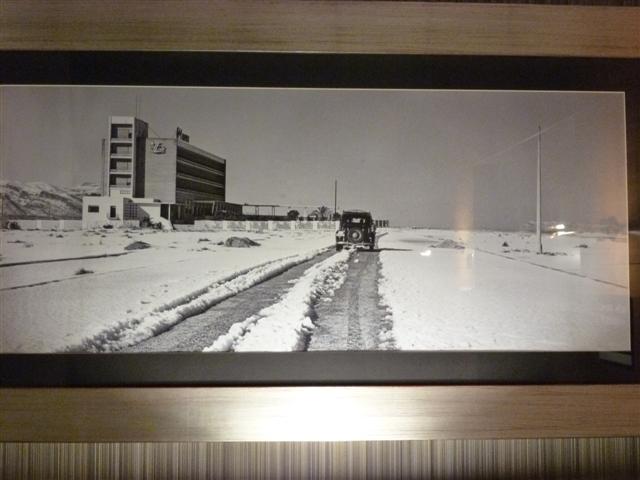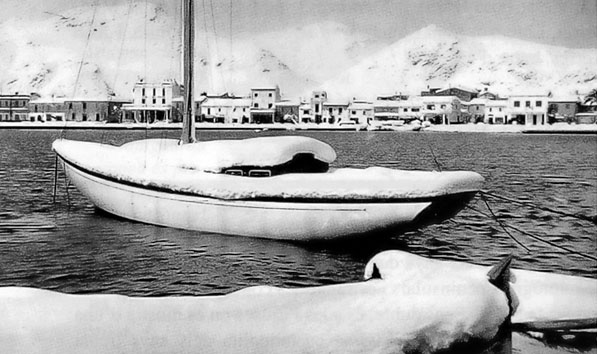6 bedrooms 3 bathrooms
Great pool Well worth a look at 260k. I almost bought it six years ago and it is still a tempter.
Sent via Osfoora
Sent from my iPad
Sent via Osfoora


IMMIGRATION IN SPAIN - A BIG ISSUE
A few days ago I had a fascinating conversation with a couple of Spanish friends of mine in Valencia – and then saw, by pure chance, in a different location altogether, a most remarkable photograph. The interesting thing is that both the conversation and photograph threw some new light (for me) on the culture of Spain and, most particularly, the culture of the Valencia region of Spain.
What on earth am I talking about?
Well, in the Valencia area of Spain it is notable how many Spaniards speak absolutely fluent French. In fact, there is a coastal village (Piles) close to where I live where you will encounter only French being spoken in some of the cafes. This may not seem too strange – until you realize that the French being spoken is by Spaniards who possess it as their mother tongue!
Now, it is fair to say that up until a few years ago French was the obligatory second language of the Spanish (it is now English), so you would expect many people to have some grasp of the language. Equally, French is very close to the Catalan dialect of the Valencia and Catalan regions of Spain (on the northern and mid eastern sideboards of Spain). However, complete fluency – particularly amongst those of late middle age and older?
The truth is that Spain, now suffering the problems of mass immigration, was, at one time, somewhere that had the reverse problem. Indeed, particularly during the Franco era (1939-1975) it had several waves of emigration. The last of these was in the mid/late 1950s and early 1960s.
Of course, you may think that the emigration was initiated by the oppressive policies of Franco (which certainly did not help!). However, in the late mid/late 1950s and early 1960s it was the weather that appears to have been the initiator. Even more surprising is that the weather that caused the trouble was not extremes of heat – but cold.

GANDIA BEACH - SNOW RIGHT TO THE SEA!
In 1956 the Valencia region (and most of the rest of Spain) suffered a period of intense cold remembered as La Gran Ola de Frío de Febrero de 1956 (The Great Freeze of February 1956). Temperatures went down to -7 degrees Celsius in Castellon and Valencia and down to -4 degrees Celsius in Alicante. The lowest temperature recorded was -32 degrees Celsius in Leridá. It is an example of this that I saw in the photograph I mentioned earlier. This shows the only hotel in existence, at the time, on Gandia beach surrounded by thick snow that continues across the sand to the sea itself. Needless to say, snow on the warm, temperate, sea level coast of Valencia is almost unknown.
In short, in 1956 it froze – and snowed in areas that virtually never experience freezing temperatures, let alone sustained cold temperatures and snow.
The trouble is that the ‘extreme’ cold temperatures did terrible damage to the citrus trees of Valencia which produced one of the most important cash crops of the region – within a society very dependent upon the agricultural industry. Of course, it was not just the citrus trees in Valencia that were damaged but also inland vineyards and other productive plants. Tragically, the damage done by the cold was so bad that the trees and vineyards remained unproductive for several years.

PUERTO DE POLLENSA 1956 (Rafel Payeras i Genovart - courtesey of www.marcomoilina.wordpress.com)
So, as you can imagine, there was terrible hardship. The very source of income for many people had disappeared and struck an enormous blow at an area that then had no significant tourism and that was suffering from Franco’s policy of isolating Spain from the rest of Europe.
The only answer, of course, was for many of the people in the Valencia area to immigrate to Northern Europe to obtain work. This they did in huge numbers – fortunately encountering Northern Europe just as it was starting to boom after the recent war years. Cheap labour was welcome and many people not only found work in France and other European countries but then settled down to live permanently where they had work, at least until things changed in Spain.
Indeed, it was not until the early 1970s that many Spanish people living away from Spain returned to the country. By that time Franco’s grip was less brutal and his health was clearly failing. By the time he died (in 1975) large numbers of Spaniards were already returning to Spain and his death accelerated this movement – the citrus groves and agriculture having long since recovered.
Of course, a high proportion of emigrant Spaniards had gone to France and, over the previous fifteen or twenty years, had started families – the children of whom had grown up speaking French and had gone to French schools. Indeed, their first experience of Spain may often have been when they returned. These ‘children’, of course, are now in their late forties…
All of this I find interesting not least because I have noticed a couple of traits amongst my Spanish friends that seem to have some connection with their recent history as immigrants. These may not be true of the overall culture of Spain but certainly are reasonably true of the Valencia area.
The first trait is the attractive tolerance (of most of the Spaniards I know) to immigrants in Spain – albeit that this tends to extend to North European immigrants rather than Muslims (who seem less popular). I think this tolerance comes from having either been immigrants themselves or having parents who had experienced life as an immigrant.
The second trait is, perhaps, less constructive. The Spanish are very ‘home based’ and are reluctant to move out of their local area whether that means moving within Spain itself or (dread the thought!) abroad. I wonder whether this is a reaction to having to immigrate in previous generations? I think any of us would find that understandable and hard-wired into the modern culture of Spain.
However, nonetheless, I fear the present economic crisis in Spain will be almost as much of an initiator to emigrate for the Spanish as the cold in 1955. To some extent this is already starting to happen with the Spanish having to balance their reluctance to leave Spain against the nigh impossibility of gaining decent work here.
So expect the culture of Spain to be buffeted again in the years to come as Spaniards return speaking…German, I imagine, and English – rather than as much French as in the past…
RELEVANT INFORMATION
The Big Issue – how immigration is changing the face of Spain
La gran ola de frío de febrero de 1956
Original Page: http://www.culturespain.com/2011/07/07/spanish-culture-and-bad-weather/
Sent from Feeddler RSS Reader